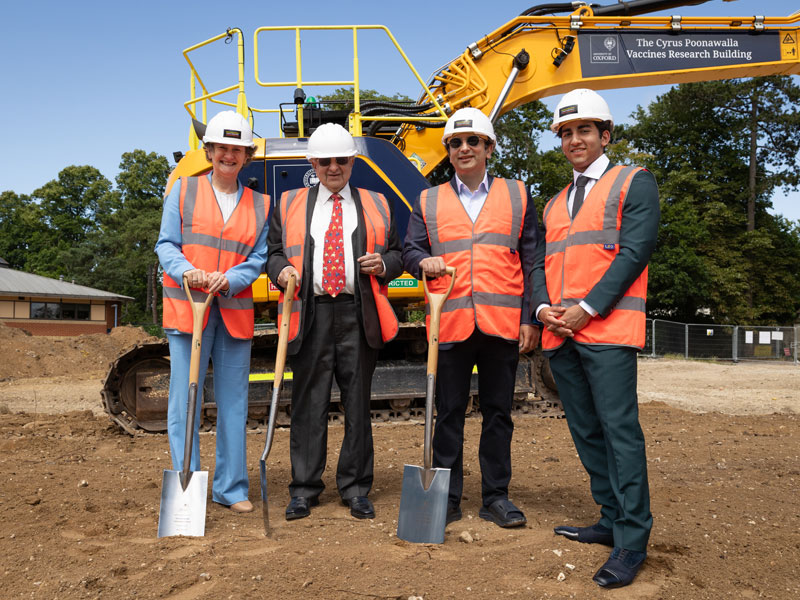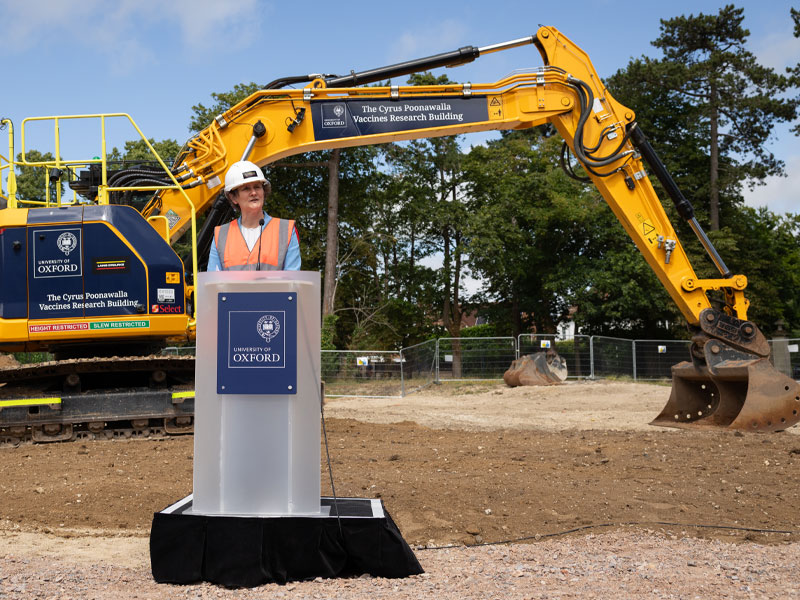The University of Oxford held a groundbreaking ceremony on Tuesday 24 June to celebrate the start of construction of the Cyrus Poonawalla Vaccines Research Building. The ceremony marks a significant milestone in Oxford’s mission to counter and constrain global health threats.
Located on the University’s Old Road Campus, the Cyrus Poonawalla Vaccines Research Building is a major new facility to host world-class vaccine and pandemic sciences research. Over 9,000m2 of high-quality lab and office space will support research focused on keeping the world safe from infectious disease threats.

The building will bring together over 400 research scientists including from the Jenner Institute, the Pandemic Sciences Institute, the Oxford Vaccine Group, the Department of Paediatrics and the Nuffield Department of Medicine. They will have access to state-of-the-art, highly secure laboratories that can handle a variety of new and emerging pathogens, enabling them to identify potential threats and develop vaccines and treatments to combat them. The building will also be a hub for clinical trials as well as research on epidemiology, surveillance, social and behavioural sciences, policy and ethics.
The groundbreaking ceremony, which was attended by members of the Poonawalla family, began with remarks from Vice-Chancellor Professor Irene Tracey and Martin Staehr from Laing O’Rourke, the company chosen to oversee construction of the building. This was followed by the formal breaking of the soil and a celebratory lunch.

The Poonawalla family later visited the Clarendon Arch, which records the names of some of the University's most prominent benefactors, dating all the way back to Sir Thomas Bodley and Queen Elizabeth I. The arch was recently inscribed with Dr Cyrus Poonawalla’s name in permanent recognition of his and his family’s support for vaccine research at Oxford.
The Clarendon Arch also recognises the generosity of the Moh Family Foundation, which made a substantial donation in 2022 to support the work of the Pandemic Sciences Institute, including a significant contribution for the new building. The University, the Department of Paediatrics, the Nuffield Department of Medicine and the Medical Sciences Division have also contributed funds to its construction.
Chris Conlon, Professor of Infectious Diseases in the Nuffield Department of Medicine and Senior Responsible Officer for the Cyrus Poonawalla Vaccines Research Building project, said: ‘This building will enable and promote world-leading research in vaccine development and in infectious diseases so that future pandemics can be averted or confronted with the proper tools to control them. It will facilitate work across a broad range of scientific experts and maintain Oxford’s critical role in global health.’